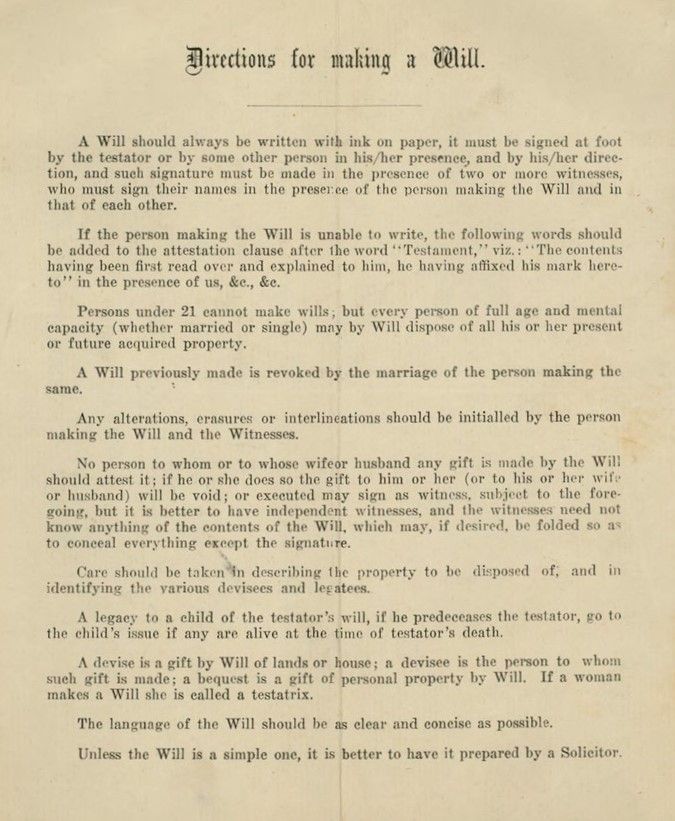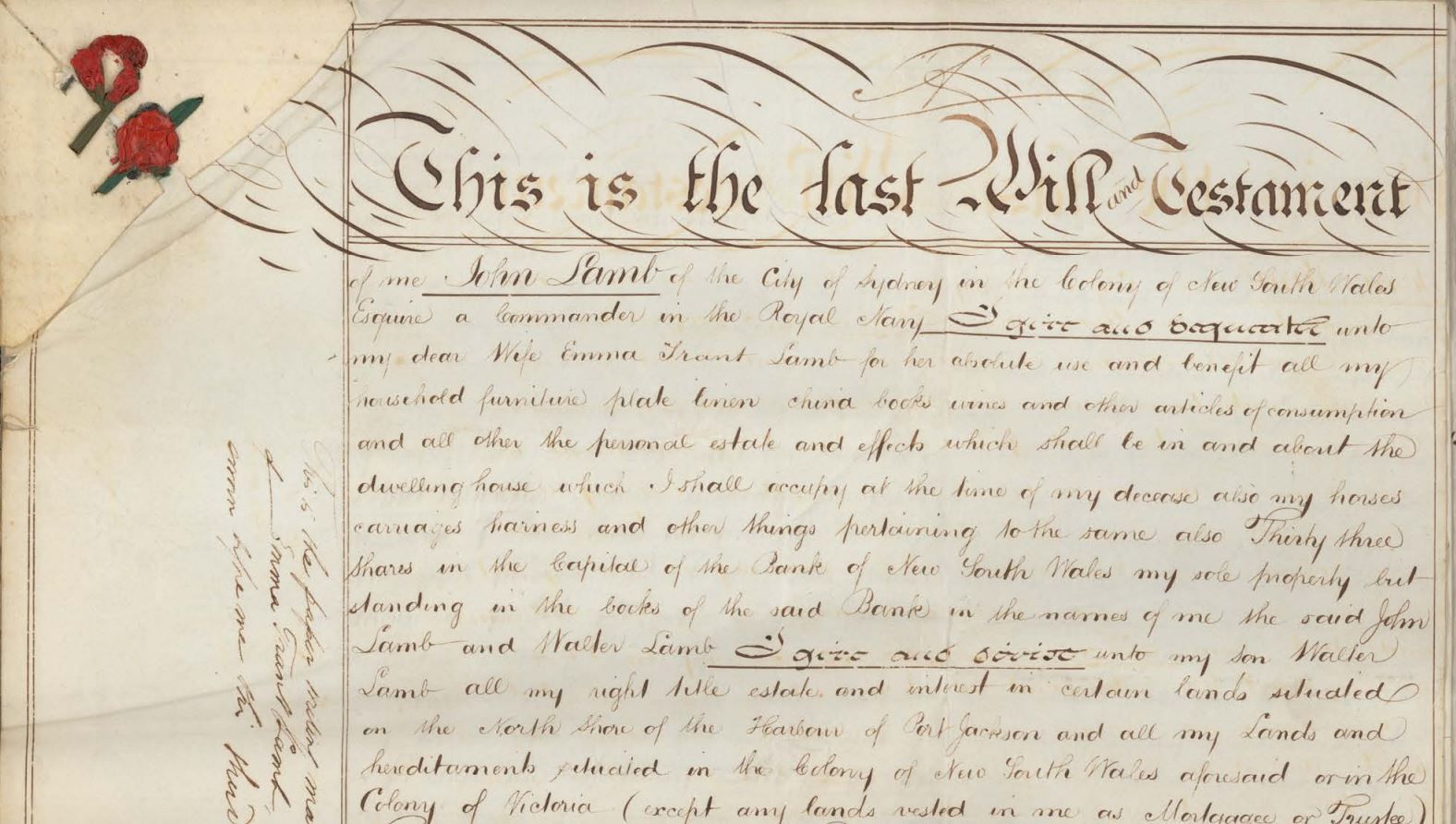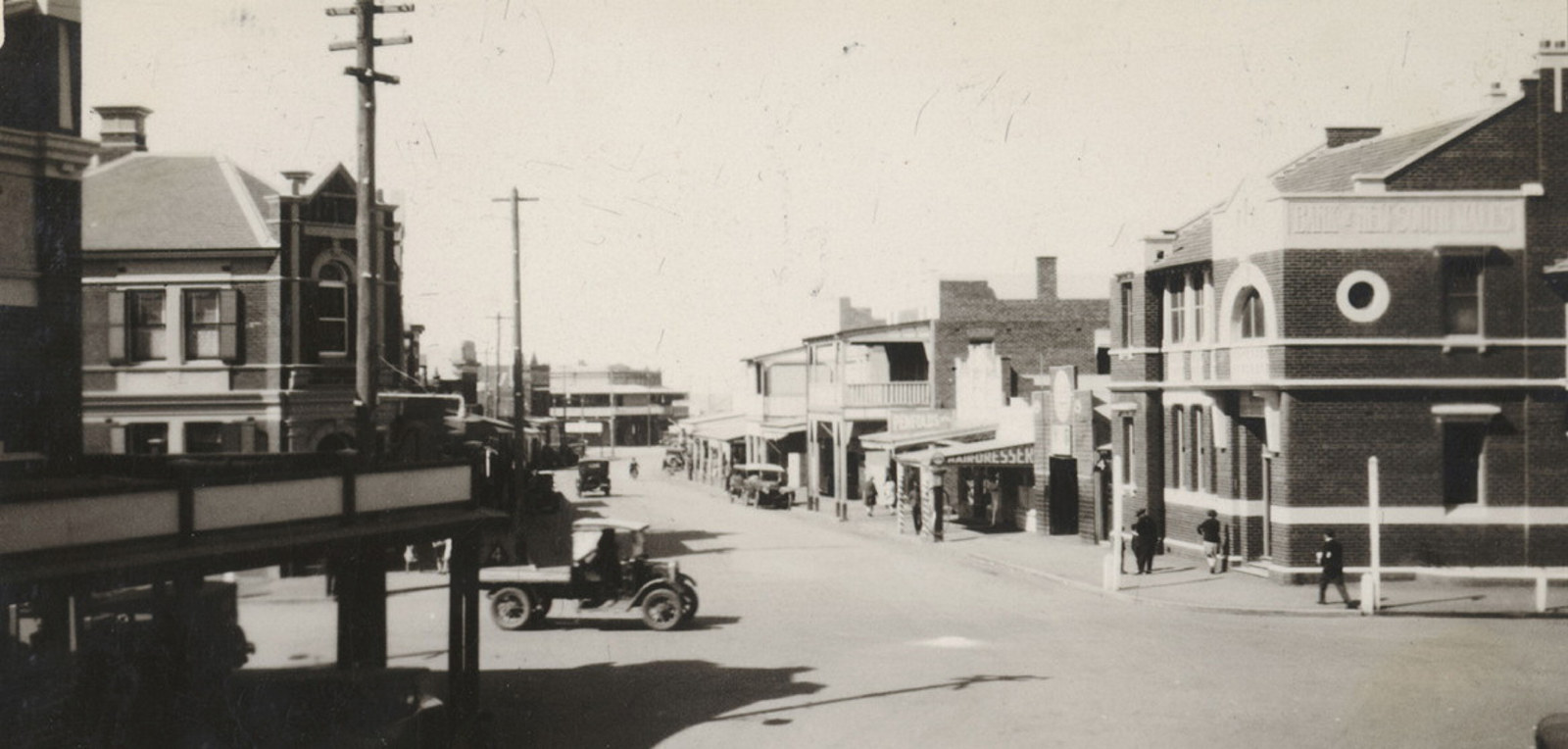Probate packets & wills guide
Probate packets include the last will & testament. The records are arranged by the date that probate was granted, not by the date of death, and in some cases it may take a number of years for probate to be granted.
What is probate?
A grant of probate is the authority given by the Supreme Court of NSW to the executor(s) to deal with a deceased person's estate. The will in the Probate packet is considered by the Court to be the only legal document.
Is there a probate packet for everyone who died in NSW?
No, not everyone who died in New South Wales has a probate packet.
Depending on the type, size and value of the assets located in New South Wales it may not be necessary to obtain a grant of probate in New South Wales. There is no statutory requirement to obtain probate in every case.

Probate packets: what the files can tell you
Probate packets hold the last will and testament, codicils, an inventory of assets of the estate, affidavits of death and other papers

Probate packets
This webinar focuses on the sources for probate in the State Archives Collection and how to find them
Which probate packets are held in the State Archives Collection?
1817-1980 & 1989
We hold Probate packets for the years 1817 to 1980 and part of 1989 (packets 100001/1989-120440/1989).
Please note there may be gaps in the range of packets held 1977-1980 and 1989.
Access note: Birth certificates contained within probate packets are closed to public access for 100 years (under AD 3292). All birth certificates less than 100 years old will be extracted from the probate packet prior to issuing. Please allow additional time for the retrieval of these records.
NSW Supreme Court
1980+ and 1989+
Please contact the Probate Division of the NSW Supreme Court for information about accessing records not held in the State Archives Collection.
How do I access the records?
Follow these steps to find and access probate packets held in the State Archives Collection
What other records are there?
Index to early probate records, 1790-1875
This index is for supplementary probate records that are not part of the main probate series.
See more information and search the index.
Will books, 1800-c.1984
Whilst we hold the majority of Probate packets for 1817-1976, occasionally a packet has not been transferred to us.
In this case, we may still hold a transcription of the will as part of the series NRS-13661, Will Books.
To access the Will books in our reading room, you will firstly need to locate a probate number by:
- checking the catalogue
- checking the Supreme Court Probate Index for 1800-1985. The index is available on microfiche in our reading room, and at some large libraries including the National Library of Australia and the State Library of NSW. The index has been published by the Supreme Court NSW Probate Division and provides: Probate packet number, series number, name of deceased, residence, date of death and instrument.
Once you have a probate number, you can access the Will Books in our reading room. Many of the Will Books have also been digitised on the subscriber website FindMyPast.
Deceased estate files, 1880-1959
NRS-13340, Deceased estate files are a financial record of the person's estate when they die and frequently have very detailed information about a person's possessions.
See more about Deceased estate records.
Sources in The National Archives (United Kingdom)
Prior to 1858 wills in the UK were proved in one of two ecclesiastical courts. These were the Prerogative Courts of Canterbury (PCC) and York (PCY) which roughly covered the geographic areas: Canterbury - South of England, Wales, York - York, Durham, Northumberland, Westmoreland, Cumberland, Lancashire, Cheshire, Nottinghamshire and the Isle of Man.
There were three main factors determining in which court a will would be proved:
- where the person died
- the value of the goods
- and how these goods were distributed geographically.
Importantly for NSW researchers, if an owner of property in England or Wales died overseas, such as soldiers or sailors, the will was proved in the Prerogative Court of Canterbury (PCC). All PCC wills are indexed and available online at The National Archives. Many relate to military personnel, but there are entries for people such as William Redfern and John Oxley who also appear in the NSW probate records.
The Society of Australian Genealogists holds the UK's National Probate Index, 1858-1943 on microfiche.
Administrative background
In the catalogue
Over 950,000 probate packets are listed and 3000+ have been digitised through our digitisation-on-demand copy service and can be viewed online.
In the Reading Room
Access original uncopied probate packets for free
Copy order service
Order a copy straight from the catalogue or through our Copy services page
Reader's ticket
To pre-order and view original records in the reading room you need a reader's ticket
Apply hereRelated
Browse all
Archives behind the scenes - probate packets
These records contain the last will and testament of the deceased as well as administrative documents around the settling of the estate

Deceased estates: what the files can tell you
The Stamp Duties Office created a file for every person who died leaving property or other assets ('estates'), which were subject to death duties. Files exist for people from all walks of life, of various ages and financial circumstances


